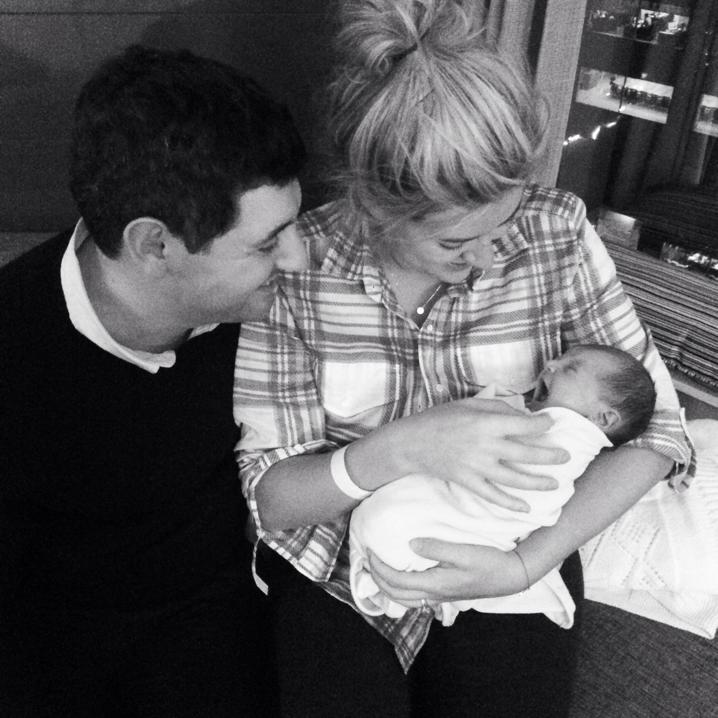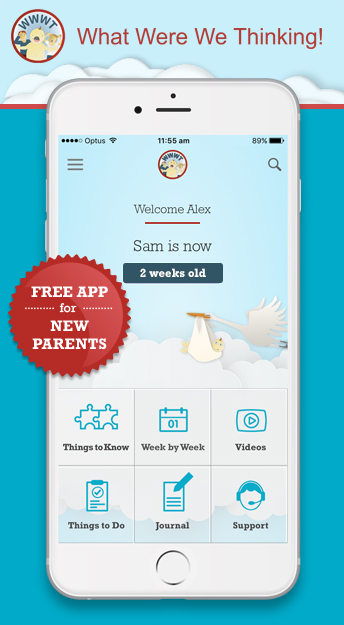Feeding time at the zoo
By Alex

I hate to admit it, but I think breastfeeding is the hardest thing I’ve ever done in my life. I don’t mean to show off, but I have a number of wonderful talents; I can solve problems and build flat pack furniture. I can calculate reasonably hard sums and can speak a second language. But breastfeeding is hard. I entered motherhood with the most positive of attitudes towards breastfeeding; I thought it would be a cinch. After attending the breast feeding information session at the hospital, I was convinced that I would 'nail it', I haven’t.
While I haven't encountered the dreaded mastitis or nipple thrush, I have had my fair share of breast/nipple drama. Blocked ducts, very badly cracked nipples, visits from lactation consultants (highly recommended), nipple shields, nipple cream, prescription cream, hydrogel breast discs (heaven in a disc), grazes, love bites, vacuum strength suction, a painful let down and we have a strange clicking sound that no one can seem to get to the bottom of. Tori and I just seem to be a little clumsy and a little awkward, and that’s how we’ve bonded.
I’m so envious of women who are such smooth operators that a bystander wouldn’t know that a dear little baby was have a good old tuck in hidden under a strategically draped muslin. For Tori and I, it’s more like feeding time at the zoo, sometimes I think that mealtime in the monkey enclosure might even run more smoothly.
Others speak of the joys of breastfeeding, the closeness, the feeling of dependency. I have glimmers of this, but my main focus is to get the baby fed. Get the baby fed, get the baby fed, feed the baby. The thought of swapping to bottle feeding or formula has crossed my mind. Breast/formula debate aside, the reason I choose to stick with it is because I believe breastfeeding is the ultimate lazy girl option, and I am the ultimate lazy girl.
It’s quick; it’s easy and requires very little preparation. If Tori is hungry, anytime anywhere, we’re good to go. No need to boil water, sterilise bottles, test temperatures or anything else, simply whip ‘em out and let the chaos begin.
The long and the short of it is that we’re sticking with it. We’ll do the six months suggested by the World Health Organisation and maybe a little more for good luck, the things you do for love, hey? Strangely, the whole experience hasn’t made me miserable or disappointed. I don’t feel like less of a woman or a bad mother, just feel a little hopeless and I’m ok with that. We just take our time get on with it and Tori has the chubbiest little legs to prove it. We’ve found our own way of feeding, it’s unique and I’ve new found respect for dairy cows.
Expert response from What Were We Thinking! expert, Jan O'Connell
Breastfeeding your baby is often talked about as something that is easy to do and ‘natural’, however, this is often not what new mums experience. Both mum and baby need time to learn how to breastfeed – it is a new skill for both and sometimes your baby needs to grow and become stronger before attachment and supply becomes ‘easy’.
The transition to being a parent in the early weeks after birth can be full of amazement, joy, tears and is at times overwhelming as you find yourself continually learning new skills. When breastfeeding is not straight forward, the result may be painful cracked nipples and an unsettled baby. The progression down the path you have described is common and it can be expensive buying the products and professional services to remedy the situation.
Although a large number of new mums experience these difficulties in the early stages of breastfeeding, it is often that you only hear stories about when breastfeeding progresses smoothly. This can,unfortunately, cause some women to loose confidence in their parenting ability as well as increase feelings of unwarranted guilt, sadness and anxiety.
Breast feeding takes 8-10 weeks to establish comfort with the technique, adequate milk supply and beginning to understand the cues your baby gives you about his/her needs such as feeding, settling, discomfort, wanting a hug. It can take even longer for your changed lifestyle to adjust to what are realistic expectations for new parenting role. But for most, it does get there by around 3 months and if you can persist, breastfeeding usually becomes an easy, enjoyable (and cheap) way to feed your child.
Despite all the best intentions and hard work, breastfeeding just doesn't work for some mums. A range of feelings of disappointment, failure, guilt, sadness & anxiety may accompany this. Some mums don’t enjoy breastfeeding for various reasons and comment that they experience a perceived pressure to breastfeed and a sense of isolation if they choose to formula feed their baby.
Having supportive people around you is important. This is the time to be kind to yourself, understand that you and your partner are learning new things and becoming more competent every day. A sense of humor along with a sense of wonder for your growing baby also helps to make these early weeks easier to enjoy.
Infant feeding is an individual preference and choice. Remember, what your baby wants and needs is a loving parent who enjoys him/her just for the amazing little person they are. The relationship you build between you is so important for their future. Take every opportunity to strengthen that.
If you are having difficulties, reach out for support and assistance and you’ll have a high likelihood that it will resolve in time. If not, formula feeding is not an admission of failure, it is a valid alternative feeding option for your beautiful child.
Well done … for your efforts and positive attitude; Tori has a loving mum.
Posted in: Baby 9-12 weeks








